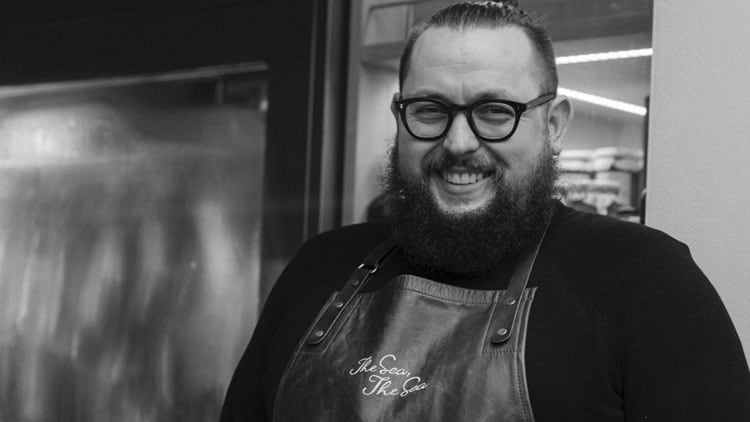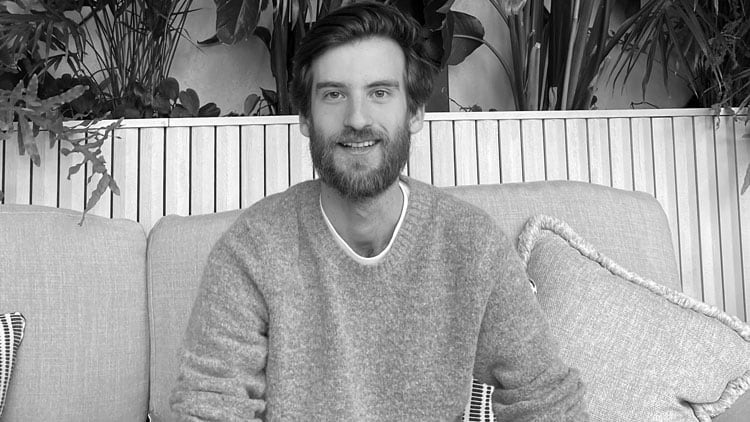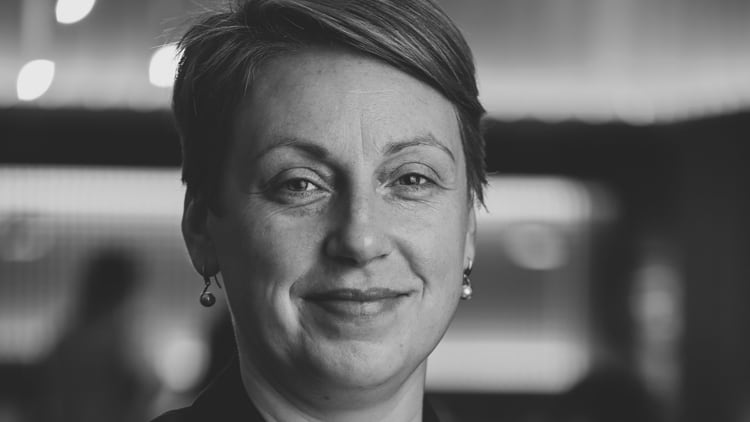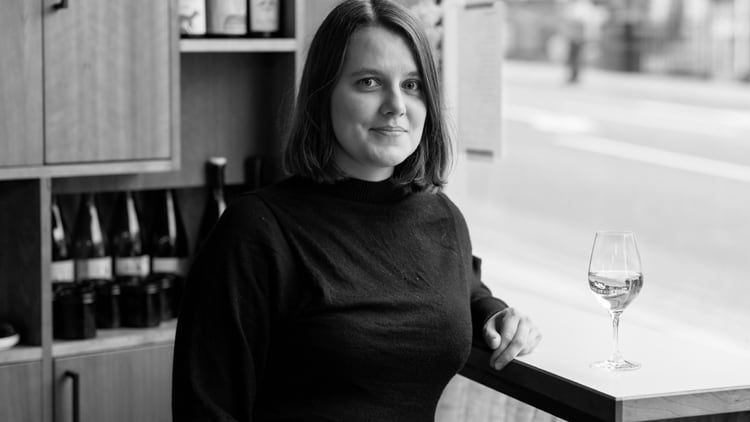Tell us about the moment you first became interested in wine
I always loved wine, but I really started to be interested professionally in 2014. In my first job at Hemingway Bar in Prague we had a company trip to Champagne and I just fell in love with the region. Deepening my knowledge has further fuelled my interest in wine.
Describe your wine list at The Sea, The Sea
Our wine list is predominately white wines, Champagne and a few English sparklings as we are a seafood focused restaurant. Of course, we have an amazing rosé for summer and a small list of interesting red wines. We tend to focus on Europe and mainly France, although we do have some from Italy, Austria, Spain, Czechia, Poland and Portugal. You’ll find mostly small wine producers practising biodynamic methods, but also a few high-end classics.
Over the course of your career, have you had any wine-related disasters?
In my twenties when I did my first sabrage of a sparkling wine, the bottle exploded and I ended up with two stitches on my left hand. Since then I’m cautious and make sure the bottle is perfectly chilled.
Name your top three restaurant wine lists?
Casse-Croûte, Kitchen Table and Dan’s (all in London).
Who do you most respect in the wine world?
I know it might sound like a cliché, but I’m going to say my father (who was a sommelier in Trnka’s native Czechia). Having the chance to watch him work with a lot of winemakers back home and grow his career has been an inspiration and gives me hope that I can do that as well one day.
What’s the most interesting wine you’ve come across recently?
I’ve been on a search for some orange wines recently for our wine list. I’m not the biggest fan of this type of wine, but I fell in love with Libre Sous le Ciel from Domaine Josmeyer. It’s an amazing Gewürztraminer made with a month of skin contact. The aroma is so exotic and full of bitter orange, apricot and rose petals, with incredibly subtle tannins and long textured finish. It was born to be paired with our dishes influenced by Japanese cuisine.
What are the three most overused tasting notes?
I’m not a big fan of the word ‘funky’ as for many people it means a different thing. I imagine for example an old red burgundy that gets aromas of barnyard than could include hay, leather and even manure. Now I hear this word more and more connected with natural wines that in my opinion are faulty. For example volatile acidity (vinegary and nail polish remover aromas), which I’m very sensitive to. I’d also add other words like sexy, fruity or smooth that don’t really tell you much about the wine.
What’s the best value wine on your list at the moment?
I’d say La Blanca from Krásna Hora in Czechia. It’s an amazing field blend which sometimes scares customers, but it gives the wines a beautiful complexity and I believe this wine will be a summer hit.
What is your ultimate food and drink match?
Quiche Maroilles, which is a recipe I got from Bénédicte Pouillon of Champagne Pouillon, which is full of eggs, cream and Maroilles cheese, paired with their Les Terres Froides Blanc de Blancs. The acidity of this 100% Chardonnay from north of Champagne with this creamy and fatty dish is to die for.
Old World or New World?
Old World for sure. Probably because it’s closer and I haven’t spent as much time deep diving into the New world.
What is your pet hate when it comes to wine service in other restaurants?
Over-chilled older white wines and Champagnes. When the temperature goes too low you lose all the precious aromatics that only develop with time.
Who is your favourite producer right now?
Now (and for the past five years) it’s Fabrice Pouillon, head and heart of Champagne R. Pouillon who makes incredible wines. It’s a small production and working for them you feel like a part of the family. He created his own unique Méthode Fabrice Pouillon to start the secondary fermentation, with sugar coming from the same grapes and the wine, and he follows the natural processes and biodynamic thinking. His wines are unique and definitely deserve bigger attention from the public (but not too much so there’s wine left for me to buy).
As a front of house supervisor, what question do you most get asked by customers?
Lot of our customers ask to pair wines with food, but in general our wine list consists of wines to work with our style of cuisine. Our concept is sharing plates, so it is a challenge to pick one wine that will pair with each individual dish, but I think we do a good job of having wines, especially by the glass, that work with a range of our dishes.
Which wine producing region or country is underrated at the moment
As you could guess from my previous answers, I love wines from my homeland. But not just Czech wines, going north and east to Slovakia and Poland. All have regions that go back hundreds of years and you can find great hard working winemakers that focus on the nature and life in their vineyard, and you could tell on the result.
It’s your last meal and you can have a bottle of any wine in the world. What is it and why?
It’s believed that the oldest vintage of Champagne lies in the cellars of Perrier-Jouët and it is from 1825. In my opinion this will never be released so if I could pick any bottle I’d have that and share it with my friends.





